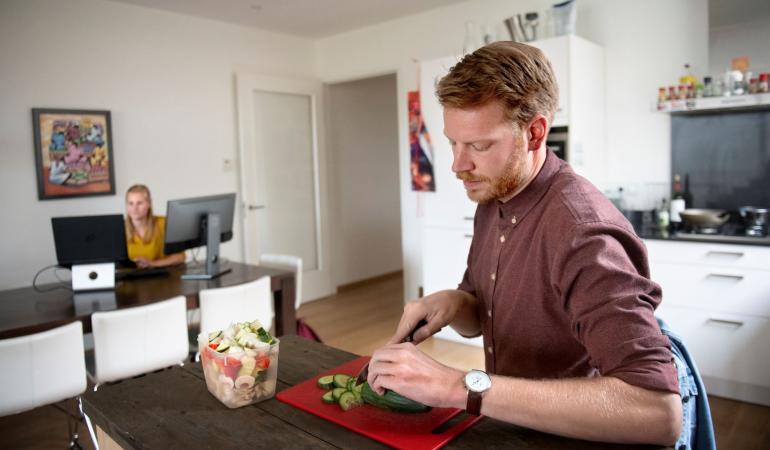
Since the recent resurgence of the novel coronavirus, more people perceive the virus as threatening. At the same time, support for the measures has increased and people are following the behavioural recommendations more closely. The most striking detail is the increase in testing: 32% of people with symptoms that could indicate a COVID-19 infection got tested. That is nearly twice as many compared to July. However, many people who have symptoms do still leave their homes. This was clear from the sixth round of the behavioural study conducted by RIVM and the Municipal Public Health Services (GGDs), conducted between 19 and 23 August.
Staying home and getting tested
26% of the study participants report that they had had symptoms in the past 6 weeks that could indicate COVID-19. Over half (54%) think that their symptoms were caused by an underlying health condition, such as asthma or allergies. Even so, 21% of these people got tested just to be sure. As many as 45% of the people who had new symptoms indicate that they had been tested within the past six weeks. 85% of them state that they got tested within four days after their symptoms started, and 59% were even tested within two days.
However, people who have symptoms (whether or not they attribute them to an underlying health condition) still go outside just as often: 90% go shopping, 43% go to work, 64% visit family or friends, and 41% go to cafés and restaurants. Despite the fact that people speak out in favour of staying home in case of symptoms (84% support this policy), it seems that many people do not comply themselves.
Support, expectations of a second wave and more
Obviously, there is a great deal more to share about this study. Visit the page on research for more details on increased support for the coronavirus measures, whether people consider it likely that there will be a second wave, the well-being of the respondents, expectations about the Coronamelder app, and more.
About the study
In order to gain a better understanding of people’s thoughts about the coronavirus measures, what motivates them to comply, and how people are affected, a joint study is being conducted by RIVM, the Netherlands Municipal Public Health Services and Medical Assistance in Accidents and Disasters (GGD-GHOR) and the Municipal Public Health Services (GGDs). The study explores human behaviour, what people think of the government’s behavioural measures, and how they are doing physically, mentally and socially in these corona times. The results above were taken from the sixth survey of more than 60,000 people in 19-23 August and compared to results from the previous surveys. These insights help the government to provide better support and information to citizens.